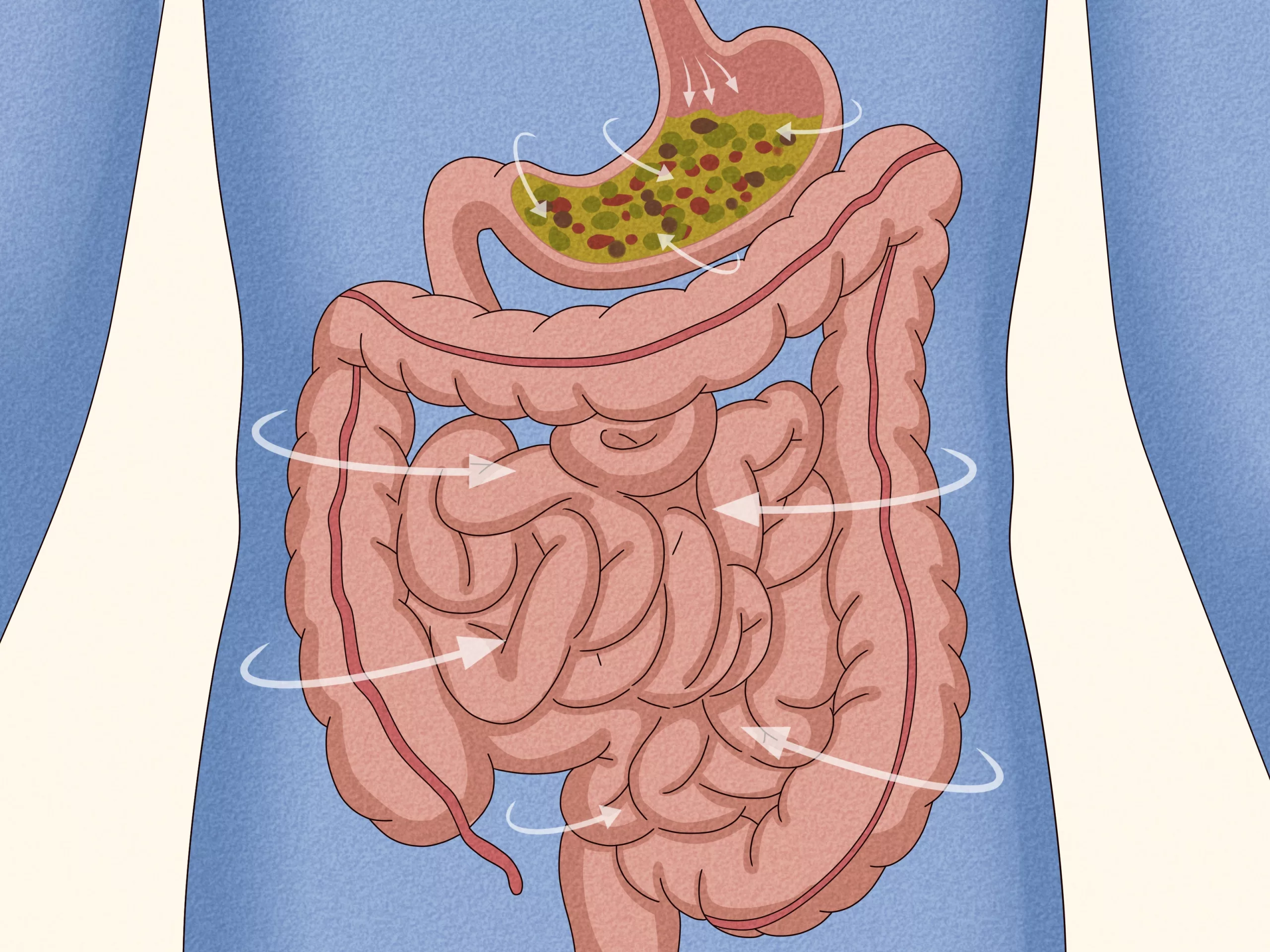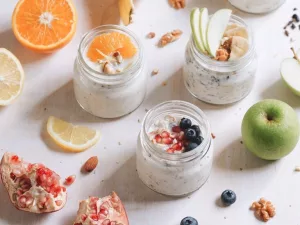
That Classic Awkward Moment
You know the feeling. You’re sitting in class. Maybe it’s a test. Maybe it’s one of those long, silent lectures where you could practically hear a pin drop. And then—like a weird audio jump scare—your stomach erupts. Grrrrrgle! Heads turn. Your cheeks flush. You wonder, Did everyone just hear that or am I being paranoid?
If you’ve ever tried to cross your arms over your belly, pretending like nothing happened… yeah, I’m right there with you. Sometimes it feels like your stomach picks the exact worst moment to turn into a megaphone. But you know what? Stomach growling is totally normal. Embarrassing? Sure. Unusual? Not at all. It’s got a scientific name, even (say this three times fast): borborygmi.
Whether you’re always hungry, just a little anxious, accidentally skipped breakfast, or you’re fasting for some reason, let’s have a real talk about how to stop your stomach from growling loudly in class. And if you want the real nerdy breakdown, you can always peek at medical advice on How to stop your stomach from growling loudly in class without eating—but I promise to keep things friendly here.
Why Right Now, Stomach?
So… Is It Hunger?
First, let’s call out the obvious: hunger is huge here. Your gut is pretty smart—it starts making those rumbling noises when it’s empty and wants food. This isn’t your body betraying you; it’s literally doing a roll call for your next meal. According to research on digestive health, when your tummy is empty, hormones are triggered. Next stop: contractions! Then all that air and leftover digestive juice just… sloshes around, and voilà—an unexpected drum solo drowns out the silence.
My Favorite “Oops”
Quick story: Last semester, I forgot breakfast and by third period, I felt my stomach start to rumble. It got so loud that my lab partner actually said, “Whoa, are you okay?” All I could do was grin and pretend it was nothing. (Inside, I was dying.)
Or Is It Digestion Drama?
Plot twist: sometimes it’s not about food at all. Maybe you did eat, but you scarfed it down in five minutes between classes. Or you had something that’s not sitting right (hello, cafeteria mystery meat?). Slow digestion, or certain foods, can make your gut extra chatty—even if you just finished eating. According to Medical News Today, the movement of food, liquid, and even gas, gets amped up by your gut’s muscle contractions. All that motion, all those bubbles, those can make the noises even louder than just an empty stomach.
Gas: The Secret Co-Star
Let’s be real: sometimes it’s gas. Beans, broccoli, carbonated drinks—these can stir up your intestines like a shaken soda can. (You’d think our bodies could find subtler ways to let us know…)
Should I Be Worried?
Okay, so, most of the time it’s harmless. But if your stomach is always making a scene and you’re dealing with things like pain, nausea, or sudden changes in the bathroom department… that could be a heads-up. Stuff like food intolerances or GI issues are worth chatting with a doc about (How to stop your stomach from growling loudly in class when fasting covers this, too). Don’t panic—mostly, it’s just annoying noise. But your gut can be a drama queen about bigger issues, sometimes!
Embarrassing but Normal
I once had a week where, no joke, every afternoon at 2pm, my gut would kick off. No pain, nothing else weird, just… that soundtrack. It turned out, I was stress-snacking on apples and cheese at lunch (bad combo for me!).
Quick Fixes: SOS for Silence
Water: The Unsung Hero
If you’re stuck in a “no food allowed” situation—mid-lecture, big test—your best move is to reach for water. Sipping (not gulping, trust me!) can help fill up some space and ease the hunger pangs, according to digestive health research. It doesn’t completely erase the noise, but it takes the edge off. Ice-cold water can shock your system, so room temp is best if you’re sensitive.
Just don’t chug a ton hoping your stomach will be silent. Sometimes, chugging can actually kick up its own sloshy sounds. Yep, you just can’t win them all, but steady sips are a safe bet.
Deep Breaths… Seriously
Slowing down your breathing helps chill your whole body out—including your gut muscles. Deep breathing isn’t just for yoga. If you feel the growl coming on, try this: sit up tall, inhale for four counts, hold, exhale slowly. It might sound woo-woo, but it’s proven to lower stress (which, by the way, can make your stomach even noisier).
Weird Tip: Push Out Your Belly
Okay, here’s a trick someone once told me on Quora—don’t suck your stomach in when you feel it grumble. Instead, push it OUT gently. Apparently, it relieves just enough pressure to stop the rumble from getting louder. I’ve tried it, and weirdly, it works about half the time.
Keep Busy (on the Sly)
I know, distraction doesn’t exactly turn off the volume. But honestly, when you engage your brain—take more notes, quietly tap your foot, ask a question—the embarrassment fades. You start thinking about something else, and so does everyone else in the room.
Long-Term Tactics: Keep Things Quiet for Good
Snack Smart and Plan Ahead
Look, sometimes you can’t eat before class. Or you can only grab a snack, not a meal. If your school allows food, though, a quick snack an hour before class works wonders. Choose something simple—banana, a rice cake, a handful of nuts, yogurt (if your stomach likes dairy). Protein shakes work great, too, especially if you’re always on the run (bonus points if you blend it at home).
| Snack | Why It Works | Why Skip It |
|---|---|---|
| Banana | Easy to digest, keeps you full | If you have a fruit intolerance |
| Yogurt | Protein + probiotics soothe the gut | Lactose can cause trouble for some people |
| Rice cakes | Gentle on the system | Not very filling if you’re super hungry |
| Beans or broccoli | Nutritious | Can create a symphony of gas and noise |
Needing to skip food for fasting, allergies, or diet? Check out extra ideas at How to stop your stomach from growling loudly in class without eating and on How to stop your stomach from growling loudly in class when fasting. There’s stuff you can try without relying on snacks.
Eat Slower, Chew More
Ever scarfed down your lunch in three bites and practically swallowed half of it whole? (Yeah, me too, way too often.) Turns out, chewing thoroughly helps way more than you think—it kickstarts digestion properly and means less gas and noisy drama later. Also, if you’re wolfing down food, you’re also probably swallowing more air, which just adds to the concert.
Try this: every time you eat, set down your fork between bites for a few seconds. I started doing this after having daily 1pm stomach concerts. Within three days, things got way quieter… and I didn’t feel nearly as bloated.
Spacing Out Meals
If your stomach’s predictable about when it gets loudest, see if you can adjust your eating schedule. Instead of three big meals, you might do better with four or five smaller ones spaced through your day. More steady fuel, fewer wild hunger signals, less dramatic noise right when you need to focus.
Does your school have awkward lunch times or long class blocks? Tucking a snack in your bag or timing meals a bit differently might make all the difference. One of my friends only eats tiny breakfasts, then snacks at 10am and again at noon—she swears it saved her from math class misery.
Tweak Your Menu
Certain foods just make more gas and noise, even if they’re healthy. According to digestive experts, things like high-fiber beans, dairy, some fruits (like apples), and gassy veggies (cabbage, broccoli, cauliflower) are the top offenders. Soft fruits, protein, and rice are much gentler choices. For some, sparkling water and soda are a definite “no” if you want silent mode. Learn which foods make your gut happy, not loud.
Extra Tips for Extra Help
Managing Stress (Easier Said Than Done)
Have you noticed your stomach acting up right before a big presentation, test, or maybe when you’re sitting next to a crush in class? Yeah, nerves can crank up the volume. Your gut and brain are besties—so when you’re worried, the signals go wild and your stomach responds with more movement, contractions, and…the rest is “audible history.”
Try those breathing exercises, get up and walk around between classes if you can, or even just step outside for a minute if you’re allowed.
Dress for Comfort
Weird but true: tight pants or belts can literally restrict your gut in a way that amps up noises! Not an excuse to wear pajamas to school (sadly), but looser fits on “noisy gut days” can make a difference.
Know When to See a Pro
If nothing seems to help and your stomach is still gurgling super loudly, especially if it’s teamed up with pain, nausea, or, let’s just say, “toilet drama,” it’s okay to check in with your doctor. For food sensitivities, allergies, or ongoing issues, sometimes you just need a little extra expertise.
You can even find helpful strategies at How to stop your stomach from growling loudly in class without eating and How to stop your stomach from growling loudly in class when fasting if you’re truly stumped.
Okay, What Now?
So, to sum up… your stomach’s growls may be embarrassing, but they’re also just plain human. (Honestly, the weirder thing would be never getting tummy noises.) There’s a bunch of little tricks and longer-term fixes—from sipping water, changing up your snacks, chewing slower, managing stress, and paying attention to your body’s “food mood.”
Start small. Try water first. Add a snack if you can. Mix up your eating schedule if you need to. And hey, if your stomach still has an attitude? Join the club. It means your gut is working, talking, and maybe just a little too eager to join in on your class discussions. Next time it happens, give yourself a break. Maybe even share your funniest “stomach growl” story—trust me, we all have them.
And if you figure out the magic cure? Please come back and share, because we’re all ears (and occasionally, rumbling tummies). Here’s to quieter classes and a gut that’s a team player. You’ve got this!























Leave a Reply
You must be logged in to post a comment.